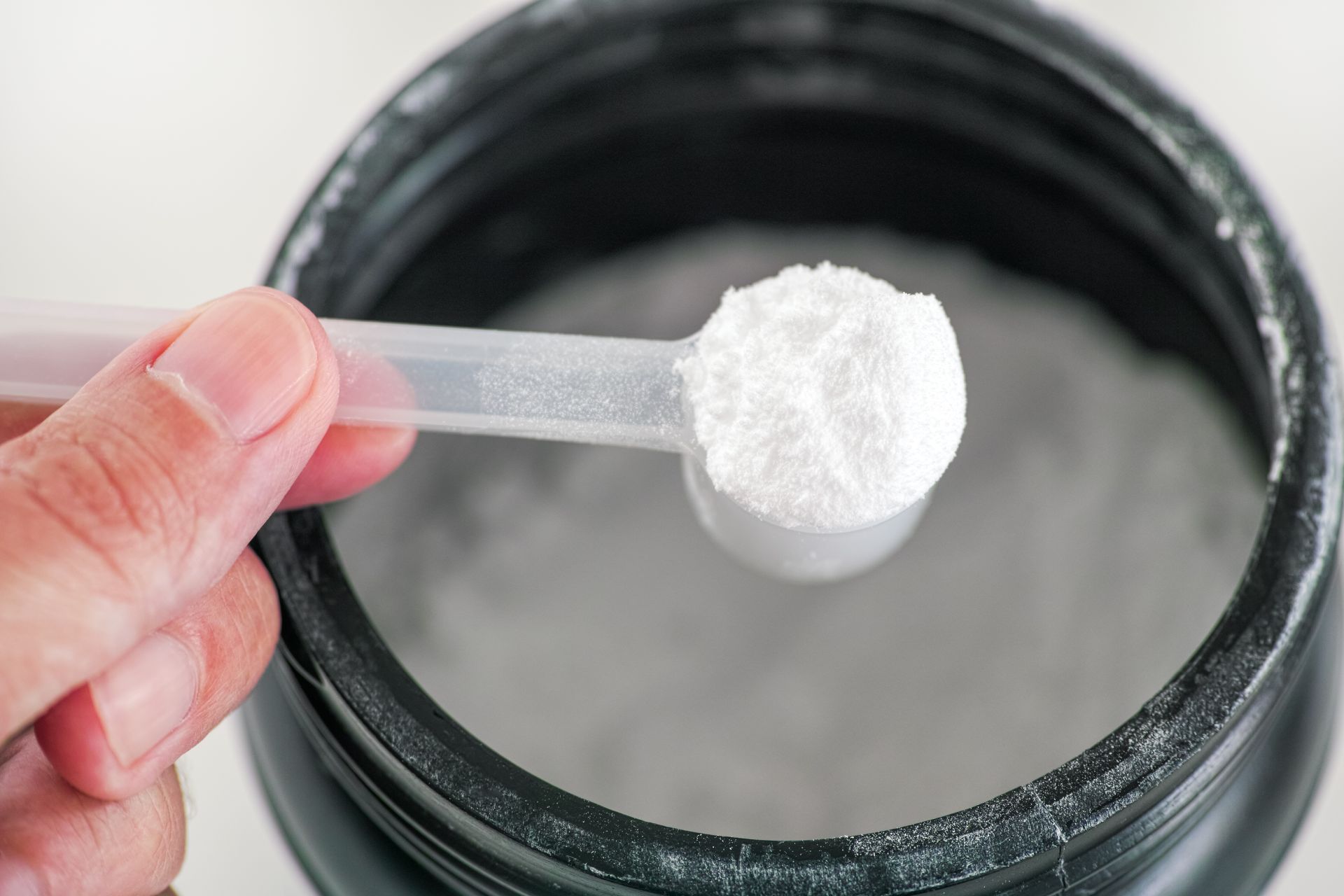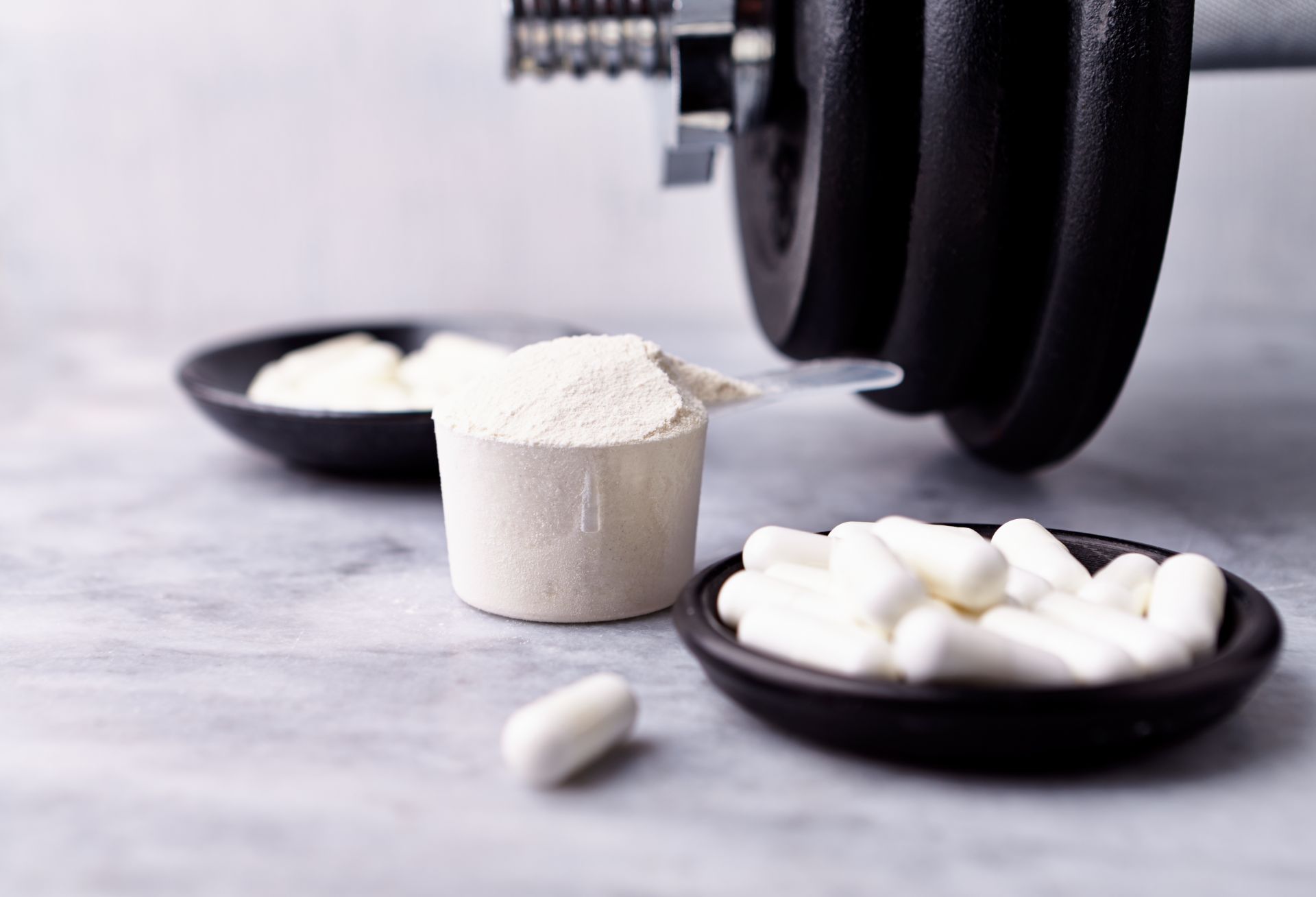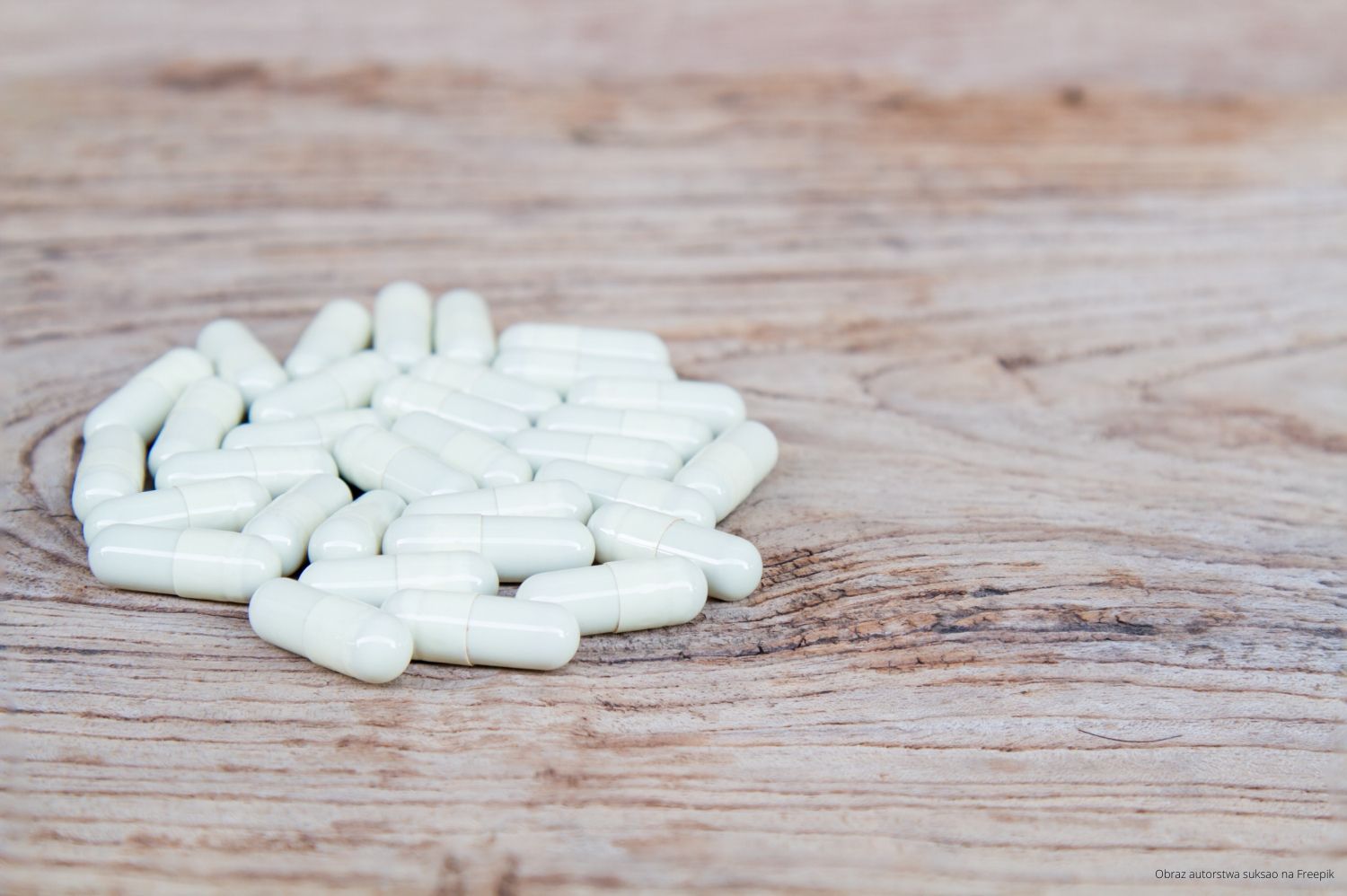All about glutamine

Glutamine is an endogenous amino acid that is naturally produced in the human body. In certain situations, however, glutamine becomes a conditionally essential (relatively exogenous) amino acid for humans. We are talking primarily about periods of increased muscle catabolism, which occur in the case of cancer, severe burns to the body and prolonged immobilization after physical trauma or surgery.
- Glutamine - what functions does it have in the body?
- Glutamine - effects on the gut
- Glutamine - can it be useful for athletes?
- Glutamine - other health benefits
- Glutamine - how to use?
Glutamine - what functions does it have in the body?
Glutamine is the amino acid that occurs in the human body in the highest amounts and accounts for about 60% of the total pool of free amino acids. The source of glutamine in our body is 60% internal production, while the remaining 40% comes from the diet and the breakdown of cellular proteins. Glutamine is involved in the synthesis of proteins, purines, pyrimidines, glucose, urea, glutathione, other amino acids and the maintenance of acid-base balance. In addition, glutamine is an important compound for the proper functioning of the immune system. Glutamine supports the proliferation of T and B lymphocytes and the metabolic activity of neutrophils, monocytes and macrophages, and stimulates the production of certain cytokines.
Glutamine - effects on the gut
Glutamine is the preferred fuel for enterocytes, the intestinal epithelial cells that determine the most important functions of the small intestine, namely the final digestion and assimilation of nutrients. In addition, glutamine is an important energetic material for rapidly dividing cells of the immune system, namely lymphocytes, monocytes and macrophages. Glutamine protects the intestinal mucosa from atrophy (loss), strengthens the body's immune mechanisms and prevents bacterial translocation through the intestinal mucosa. In addition, glutamine plays a key role in the proper functioning of the gastrointestinal immune system (GALT), preventing villous atrophy of the small intestine. Glutamine deficiency can contribute to damage to the small intestinal mucosa, with the negative consequence of increased permeability of the intestinal wall, which facilitates the passage of toxins or pathogenic bacteria deep into the tissues.
Glutamine - can it be useful for athletes?
Intense physical exertion, and even more so during hot weather, promotes the occurrence of heat stress, which can lead to damage to the tight junctions between intestinal epithelial cells (tight junctions), which ensure the integrity of the intestinal barrier. Negative consequences of this phenomenon include compromised intestinal barrier integrity and increased risk of translocation of bacteria and endotoxins from the gastrointestinal tract. Translocation of bacteria and endotoxins from the intestinal lumen into the bloodstream increases the production of pro-inflammatory cytokines and results in gastrointestinal symptoms such as diarrhea, nausea, vomiting, abdominal pain and a feeling of overflow in the intestines. Glutamine has been shown to reduce intestinal permeability resulting from intense sports and to alleviate persistent gastrointestinal discomfort in endurance athletes. It has also been suggested that glutamine supplementation increases muscle glycogen synthesis and decreases levels of certain markers of skeletal muscle damage, especially when administered over an extended period of time (minimum 5 days).

Glutamine - other health benefits
Studies have shown that glutamine supplementation contributes to improving nitrogen balance (i.e. reduces protein breakdown) and nutritional status of the body, alleviating inflammation (lowering IL-6, TNF-ɑ, C-reactive protein levels in the blood) and boosting immunity in seriously ill patients. Glutamine has a beneficial effect on the functioning of the immune system, helping to reduce the incidence of postoperative complications and infections, as well as reducing the risk of mortality and the length of hospital stay. The main benefit of glutamine is to improve the outcome of injuries, burns and serious injuries. Glutamine reduces the incidence of infectious diseases in adults undergoing abdominal surgery for peritonitis (infection of the abdominal cavity). In addition, in people undergoing radiation therapy for head and neck cancer, glutamine may reduce the severity of oral mucositis and reduce the amount of opioid analgesics used. It has also been suggested that glutamine may alleviate symptoms characteristic of irritable bowel syndrome (IBS) when used along with a low FODMAP diet.
Glutamine - how to use?
For therapeutic purposes, glutamine is usually recommended at a dose of 5 g per day. This daily dose of glutamine appears to be entirely sufficient to support the normal functioning of the gastrointestinal tract and immune system, and to alleviate the possible relative glutamine deficiency observed in the postoperative period, in patients with cancer cachexia and severe burns, and in those with chronically low dietary protein intake. Currently, higher doses of glutamine are discouraged due to a possible excessive increase in serum ammonia levels.
Sources:
-
McRae M.P.: Therapeutic benefits of glutamine: An umbrella review of meta-analyses. Biomed Rep. 2017 May; 6(5): 576-584.
-
Legault Z., Bagnall N., Kimmerly D.S.: The Influence of Oral L-Glutamine Supplementation on Muscle Strength Recovery and Soreness Following Unilateral Knee Extension Eccentric Exercise. Int J Sport Nutr Exerc Metab. 2015 Oct;25(5):417-26.
-
Zuhl M.N., Lanphere K.R., Kravitz L., et al: Effects of oral glutamine supplementation on exercise-induced gastrointestinal permeability and tight junction protein expression. J Appl Physiol (1985). 2014 Jan 15;116(2):183-91.
-
Zuhl M., Dokladny K., Mermier C., et al: The effects of acute oral glutamine supplementation on exercise-induced gastrointestinal permeability and heat shock protein expression in peripheral blood mononuclear cells. Cell Stress Chaperones. 2015 Jan;20(1):85-93.
-
Cruzat V, Macedo Rogero M, Noel Keane K, et al: Glutamine: Metabolism and Immune Function, Supplementation and Clinical Translation. Nutrients. 2018 Oct 23;10(11):1564.
-
Coqueiro AY, Rogero MM, Tirapegui J.: Glutamine as an Anti-Fatigue Amino Acid in Sports Nutrition. Nutrients. 2019 Apr 17;11(4):863.
-
Kędziora S, Słotwiński R, Dąbrowska A.: Glutamine-containing nutritional treatment according to the recommendations of the European Society for Clinical Nutrition and Metabolism (ESPEN). Gastroenterological Review 2010; 5 (5): 258-265.
 ⮜ Previous article
⮜ Previous article
Magnesium - action, symptoms, deficiencies, occurrence
 Next article ⮞
Next article ⮞